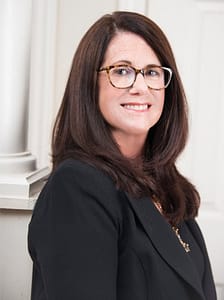Over the last sixteen months, you have probably heard from your patients over and over that they were so happy to have an excuse to leave their homes even if it was for a dental appointment. Patient’s personal schedules are starting fill again with social commitments, working for home is morphing into a different model, team sports are beginning, and children’s activities are back in family calendars. For all of these reasons we will likely be going back to having hygiene and Doctor schedules with openings for reasons other than illness.
Our teams need to be getting back to basics to prevent schedule openings in advance to keep your teams from scrambling fill openings. Here are some tips to share with your team to avoid openings:
- Ensure that patients are being contacted in a way that is meaningful to them. In our digital world most patients would like to be contacted by text, cell or email. Ensure that you have patient preferences marked and using an efficient patient communication software will help with this task.
- If patient appointments are booked far in advance, then confirm two weeks before the appointment and then remind again two days before their appointments. Some patients even request a same day reminder as well and having these systems in place will alleviate some of the frustration for your administrators.
- If you look three weeks ahead in your schedule and you or your administrators can pick out a number of patients who will cancel, change or no show their appointments then you likely are pre-appointing “high risk” patients. An office rule of pre-appointing everyone doesn’t work for patients who don’t have regularly scheduled work hours, patients who may not be reliable in nature or even students who don’t have a regular schedule (university and college). Using your software treatment management lists in an effective manner will allow you to not “lose” these patients but connect with them close to their due date so that they are able to fully commit to their appointed time.
- Verbiage surrounding appointment making needs to provide some urgency as well as patient loyalty. Patients who are appointed by the hygienist are more likely to keep their original appointments than patients who are appointed by an administrator as patients don’t want to disappoint “their” hygienist. Patients who are told that they need to book for just a cleaning won’t feel the urgency the same as patients who are told that they are being booked for a hygiene scaling appointment and an examination. When booking an appointment and saying that the Dr. will be in to do a check again takes away from the importance of the appointment as well, patients should be told that the Dentist will be doing an examination.
- When patients call in to cancel an appointment, have your team prepared with scenarios for reasons that patients might cancel and provide an optional script of how this can be handled. Everyone on your team should be on board with this system so that patients can’t get away with something with one administrator and not another.
- Using threats of a cancellation fee when you never charge one is not an effective method of discouraging cancellations. Keeping track of patient’s cancellations or no shows along with their reasons for cancelling allows you to make an informed decision as to whether or not you want to retain these patients in your practice.
No matter how many systems you have in your office you are never going to be entirely rid of short notice cancellations or no shows as you can’t control patient’s behavior. What you can do is make your expectations clear to the patients (without being overbearing) and have the systems in place to have a pool of patients to draw from to fill these openings instead of the last-minute scrambling that can take place.



